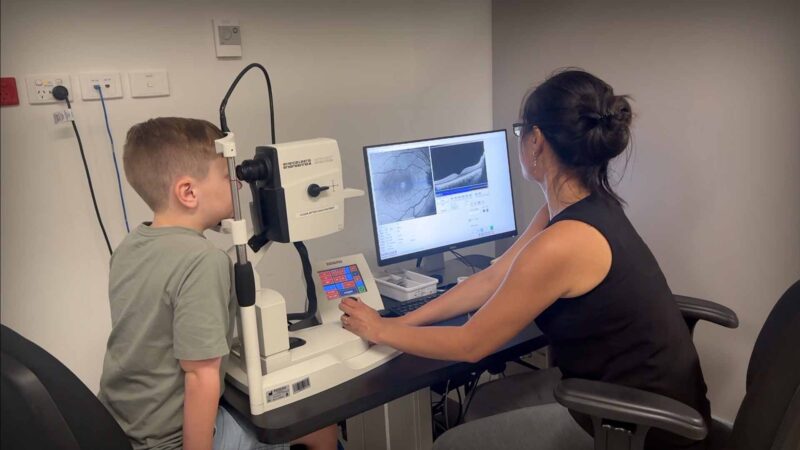IMPACT OF NEXTSENSE INSTITUTE RESEARCH IN THE FIELD OF SENSORY DISABILITIES
With
Professor Greg Leigh AO,
Director, NextSense Institute, Australia &
Conjoint Professor,
Macquarie School of Education
Macquarie University, Sydney
RESEARCH IMPACT
Filmed in Sydney, Australia | June 2025
NextSense, formerly known as the Royal Institute for Deaf & Blind Children, is a not-for-profit established in 1860 that provides dedicated, innovative, and customised services aimed at breaking down barriers for children, adults and families of people with hearing or vision loss.
NextSense has a 165 year history of providing services and education for individuals with sensory impairments. With the support of donations, NextSense provides vital support for children and adults, more cochlear implants than any other service in Australia, and is a world leader for research, technology and professional education in the fields of visions and hearing loss.
NextSense clinicians are actively involved in a number of leading research projects—both independently and in collaboration with local and international organisations.
The NextSense Institute, part of NextSense is Australia’s leading centre for research and professional education in the field of sensory disabilities.
The Institute offers a range of educational programs, including postgraduate degrees, professional development courses, and customised training for educators, therapists, health professionals, and carers. One of its flagship programs is the Master of Disability Studies, delivered in affiliation with Macquarie University, which prepares professionals to work with individuals who are deaf, hard of hearing, blind, or have low vision.
Professor Greg Leigh AO, Director NextSense Institute, talks about 3 areas of research that have had significant impact in it’s delivery of programs and services to Australians and countries across the world.
Through this research, NextSense Institute aims to break down barriers and redefine what is possible for individuals with sensory disabilities, fostering inclusion and enhancing quality of life.
Source: Written by AUDIENCED using source information from the NextSense website
You Might also like
-
Seeking discoveries in earlier bowel cancer detection
Associate Professor Susan Woods is a cancer research focused on eradicating bowel cancer through earlier detection and investigating the DNA related from colorectal cancer cells. She leads the Gut Cancer Research Group at the University of Adelaide and SAHMRI and with her team is researching new treatments for advanced disease.
-
Inner ear organoids for the study of human hearing and balance
Dr Jackie Ogier is an auditory neuroscientist, with a research focus on the molecular biology of hair cells, the specialised sensory receptors in the ear that detect sound and balance. She is a postdoctoral research fellow in the laboratory of A/Prof Bryony Nayagam, supported by a prestigious Passe and Williams foundation fellowship.
Dr Ogier’s experience broadly spans the genetics of hearing loss, disease modelling, micro dissection, primary cell culture, stem cell culture, organoids, and proteomics. Overall, she aims to generate knowledge of hearing and vestibular sensory biology.
-
Genetics of the choroid and impact on eye health
Dr Samantha Lee is a Senior Research Fellow at Lions Eye Institute and the University of Western Australia. Dr Lee obtained her PhD in 2017 and the Queensland University of Technology and has since been working on the genetics and environmental causes of various eye diseases, with a focus on glaucoma and myopia. She has published 57 full-length scientific papers and her work has been cited over 1,000 times. She serves on the Editorial Board for the journal BMC Ophthalmology and Scientific Reports, and on the Research Advisory Committee for the Ophthalmic Research Institute of Australia.



